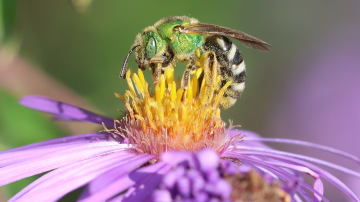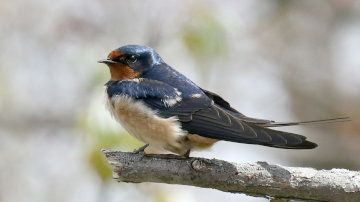Nature Notes

PHOTO COURTESY OF GARRY KESSLER
Virginia meadow-beauty or deer grass
January 11, 2024
NATURE NOTES
By Annie Reid
Westborough Community Land Trust
WCLT’s Nature Notes Quiz on 2023

PHOTO COURTESY OF GARRY KESSLER
Bi-colored striped sweat bee

PHOTO COURTESY OF GARRY KESSLER
Barn_swallow

PHOTO COURTESY OF GARRY KESSLER
Eight-spotted forester moth
The January 6-7 snowstorm probably reassured anyone remembering the poet’s famous question, “Where are the snows of yesteryear?” (Francois Villon, 1489). Yet the quick warm-up after that storm still suggests that this winter might be like a typical New Jersey or Virginia winter, and that our local ponds might not freeze enough for ice fishing or ice skating.
We’ll see. As you wait, recall plants, animals, and fungi from last year’s Nature Notes by taking WCLT’s 2023 Nature Notes Quiz. And take the opportunity to think about what the future might hold for them and their habitats in a changing world.
Choose your answers from the drop down lists. Check your answers by clicking the "Show Answers" button. The answer page will contain links to the 2023 “Nature Notes” columns so you can re-read them as a way of preparing to enjoy nature in 2024.